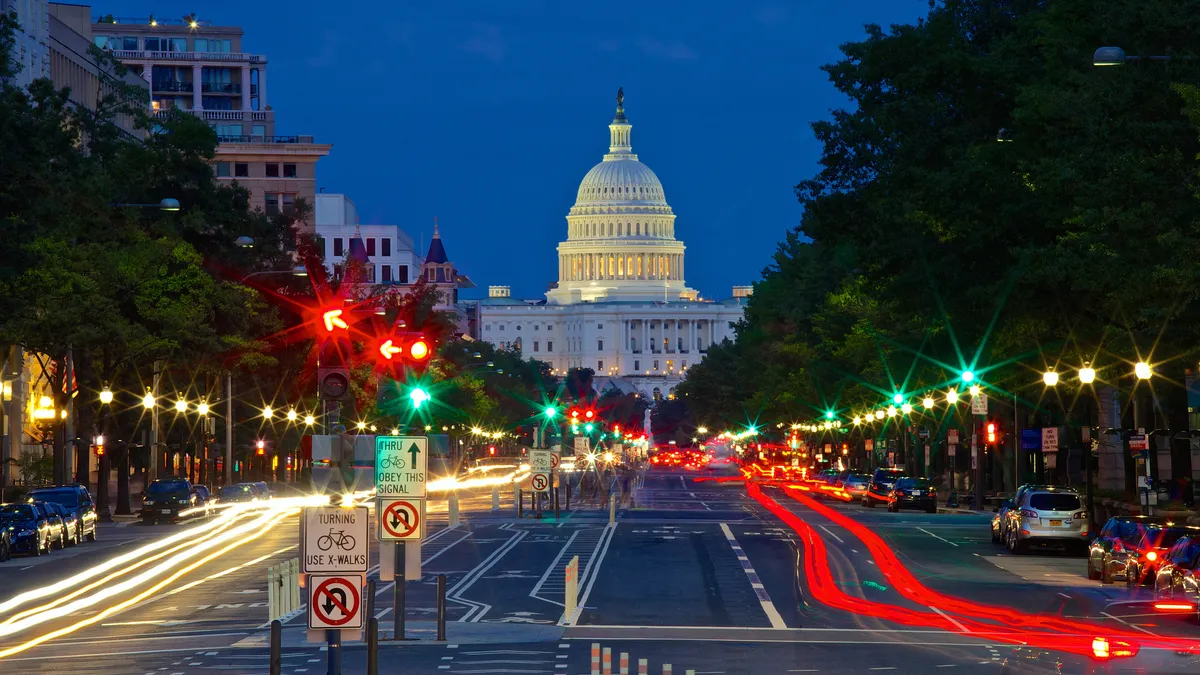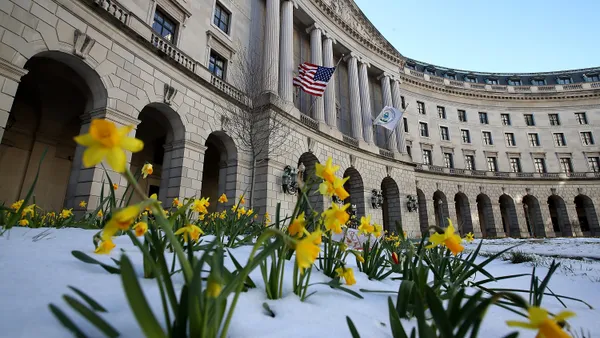Dive Brief:
- The District of Columbia Public Service Commission has proposed new protections for electric and natural gas customers, including allowing additional time to cancel a contract, adding requirements to advertising variable-rate contracts, and speeding service changes while adding layers of verification.
- D.C.'s Office of the People's Counsel proposed classifying distributed generation providers as energy suppliers, but the Commission said the decision on how to classify DG would be discussed in its grid modernization docket, F.C. 1130.
- The new protections came as part of a rulemaking designed to amend certain provisions of the district's Utility Consumer Bill of Rights within the retail electrical choice market.
Dive Insight:
Utility regulators in the nation's capitol are considering new consumer protections that could change how competitive retail providers of electricity and gas interact with customers.
For an electricity customer, transfers to a new supplier should take no more than three business days after the utility has received notice of the change, and new privacy policies will protect customer information.
The changes specify that within 24 hours after making changes to publicly available current offers, retail suppliers "shall provide the Commission Secretary with information regarding the changes in its rates, charges and services that are being made so that the Commission has current information about the Energy Supplier."
Changing the definition of "energy supplier," to include "persons engaged in distributed generation" could expand distributed resource requirements, but Energy Choice Matters notes some provisions apply to "contracts" rather than suppliers, so the impact of OPC's proposal is unclear. And the PSC will decide whether or not to classify DG as an "energy supplier" in its ongoing grid modernization proceeding.
Consumer protections, particularly for low-income ratepayers, have become an increasing focus. New York has taken steps to crack down on unscrupulous marketing, and last week a New York court maintained the state's ban on energy service company sales to low-income customers.















